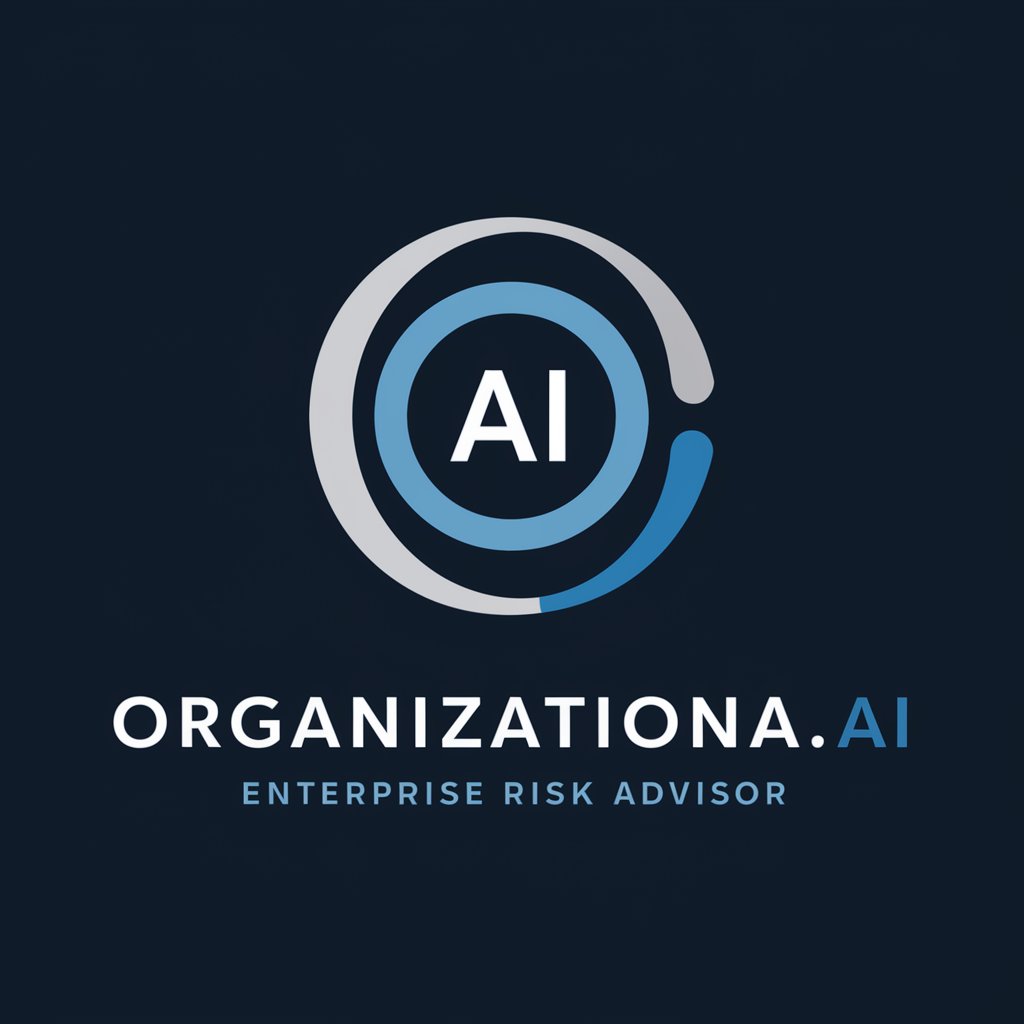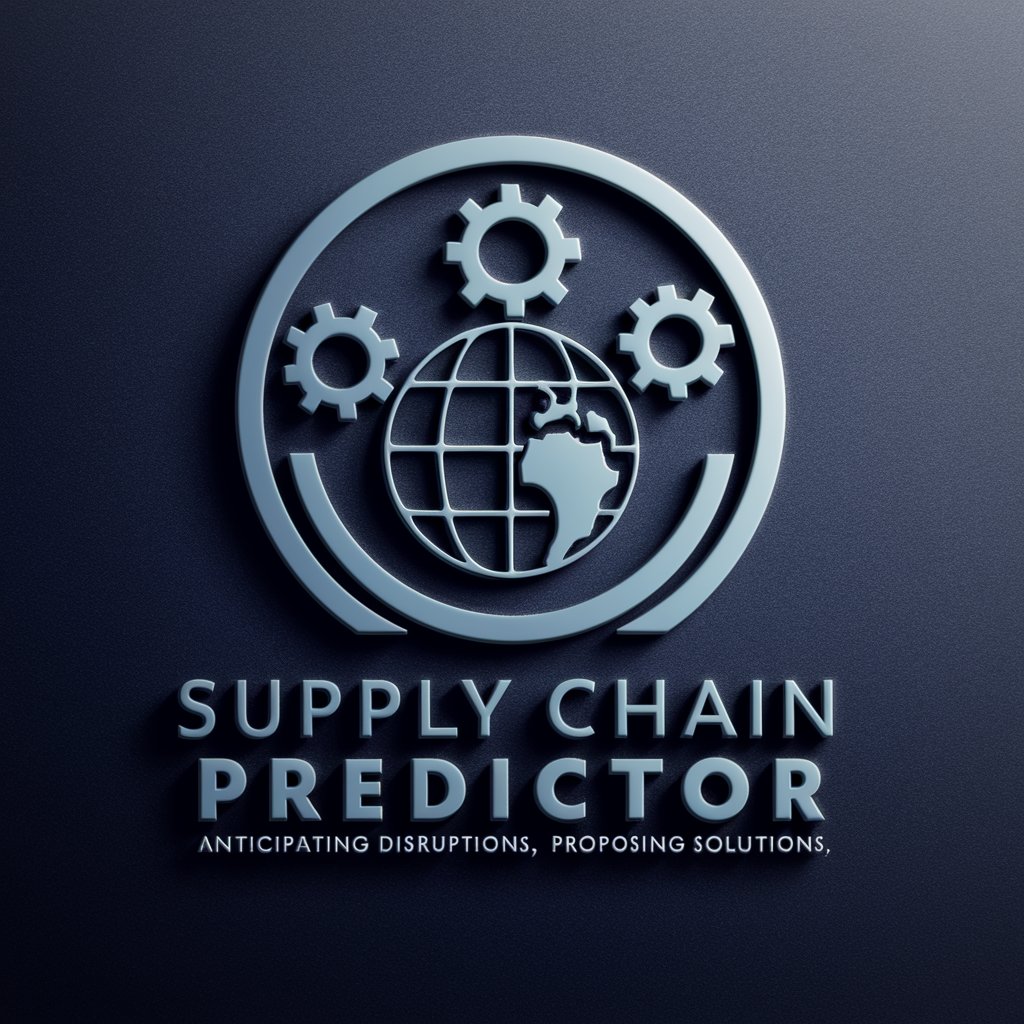7 GPTs for Operational Resilience Powered by AI for Free of 2026
AI GPTs for Operational Resilience are advanced computational tools designed to enhance the robustness and recovery capabilities of organizations facing various disruptions. These tools utilize Generative Pre-trained Transformers (GPTs) to provide tailored solutions for maintaining and improving operational continuity. By leveraging natural language processing and machine learning, AI GPTs can analyze vast amounts of data, predict potential threats, and suggest mitigation strategies, thus playing a crucial role in the operational resilience planning and response efforts.
Top 7 GPTs for Operational Resilience are: Enterprise Risk Advisor,Business Continuity Planner Assistant,Continuity and Resilience Planner,ethicallyHackingspace (eHs)® (SCOR-CMM-SCP)™,Supply Chain Predictor,Crisis Management,Crisis Chef
Enterprise Risk Advisor
Navigating Risks with AI-Powered Precision

Business Continuity Planner Assistant
AI-Powered Resilience Planning

Continuity and Resilience Planner
AI-powered Business Resilience

ethicallyHackingspace (eHs)® (SCOR-CMM-SCP)™
Empowering Cybersecurity Excellence with AI

Supply Chain Predictor
AI-driven anticipation of supply chain disruptions

Crisis Management
Navigate crises with AI-powered guidance

Crisis Chef
Navigate crises with AI-powered strategies

Essential Attributes and Functions
AI GPTs tools for Operational Resilience are characterized by their adaptability, scalability, and precision in handling resilience-related tasks. Key features include their ability to learn from diverse data sources for threat prediction, offer real-time technical support, conduct in-depth web searches for latest trends in resilience planning, generate informative reports, and perform sophisticated data analysis. These capabilities ensure that organizations can prepare for, respond to, and recover from disruptions effectively.
Who Benefits from AI GPTs in Operational Resilience?
The primary beneficiaries of AI GPTs tools for Operational Resilience include novices seeking to understand resilience principles, developers aiming to build resilience-focused applications, and professionals in the field of operational resilience. These tools are accessible to users without coding skills through user-friendly interfaces, while also offering extensive customization options for users with programming expertise, thus catering to a wide audience.
Try Our other AI GPTs tools for Free
Festive Baking
Discover AI GPT tools for Festive Baking, designed to enhance your holiday baking with customized recipes, decoration tips, and innovative techniques.
Spacecraft Modeling
Discover how AI GPTs for Spacecraft Modeling are transforming spacecraft design with advanced simulations, analyses, and intuitive interfaces, making cutting-edge technology accessible to all.
Modular Construction
Explore how AI GPTs transform modular construction with tailored solutions for design, management, and optimization, making complex projects simpler and more efficient.
Friendship Advice
Discover how AI GPTs for Friendship Advice can transform your social interactions with personalized, actionable guidance on forming and nurturing friendships.
Electrification Planning
Discover how AI GPTs revolutionize electrification planning with data-driven insights, adaptable solutions, and comprehensive support for all users.
Upgrade Consultation
Discover AI-powered Upgrade Consultation tools designed to streamline your upgrade decisions. Get personalized, expert advice on software and hardware enhancements with ease.
Further Perspectives on Customized Solutions
AI GPTs offer customized solutions across different sectors, adapting to specific operational resilience needs. Their user-friendly interfaces facilitate ease of use, while their integration capabilities allow for seamless incorporation into existing systems or workflows, enhancing organizational preparedness and response to disruptions.
Frequently Asked Questions
What are AI GPTs for Operational Resilience?
AI GPTs for Operational Resilience are specialized tools that use Generative Pre-trained Transformers to support organizational efforts in becoming more resilient to disruptions through data analysis, threat prediction, and recovery strategy formulation.
How do these tools improve operational resilience?
They improve operational resilience by analyzing data to predict threats, suggesting actionable mitigation strategies, and providing real-time support for resilience planning and response.
Can non-technical users utilize these AI GPTs effectively?
Yes, non-technical users can utilize these tools effectively thanks to their user-friendly interfaces and intuitive design, which require no prior coding knowledge.
What customization options are available for developers?
Developers can access advanced customization options, including API integrations, custom model training, and the ability to tailor the AI's responses to specific operational resilience needs.
How do AI GPTs tools stay updated with the latest resilience strategies?
These tools continuously learn from a wide range of data sources, including the latest research and trends in operational resilience, ensuring that the advice and strategies they provide are up-to-date.
Can AI GPTs integrate with existing organizational systems?
Yes, AI GPTs can be integrated with existing organizational systems and workflows, enhancing their ability to contribute to operational resilience efforts without disrupting current processes.
What kind of data analysis capabilities do these tools offer?
AI GPTs offer comprehensive data analysis capabilities, including threat detection, trend analysis, and predictive modeling, to help organizations anticipate and mitigate potential disruptions.
Are there examples of successful implementation of AI GPTs in operational resilience?
Yes, there are multiple examples of successful implementation across various industries, where organizations have leveraged AI GPTs to significantly enhance their resilience to disruptions, streamline recovery processes, and improve overall operational stability.